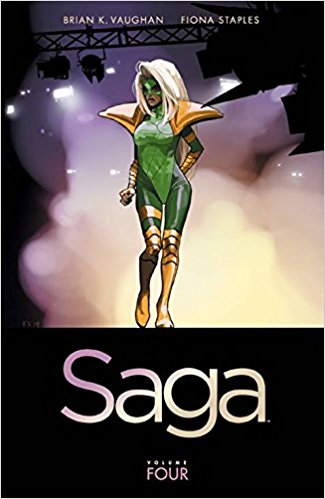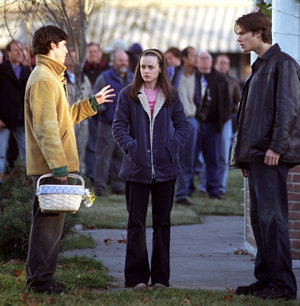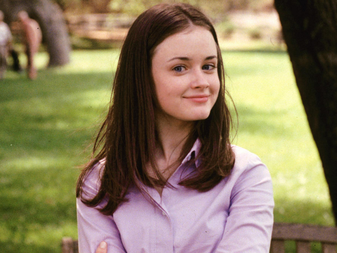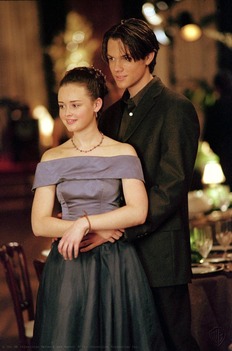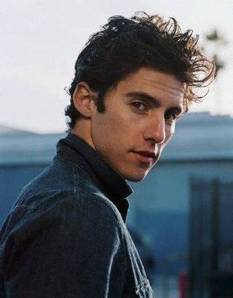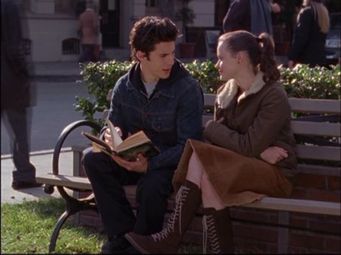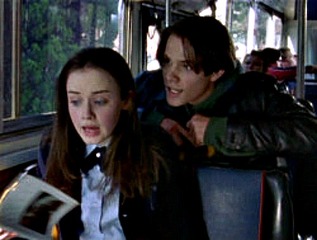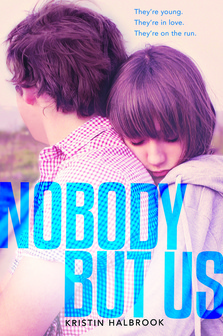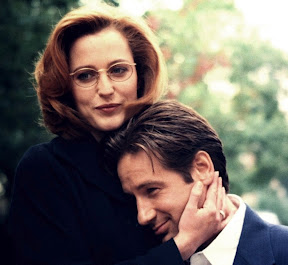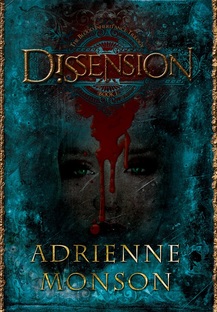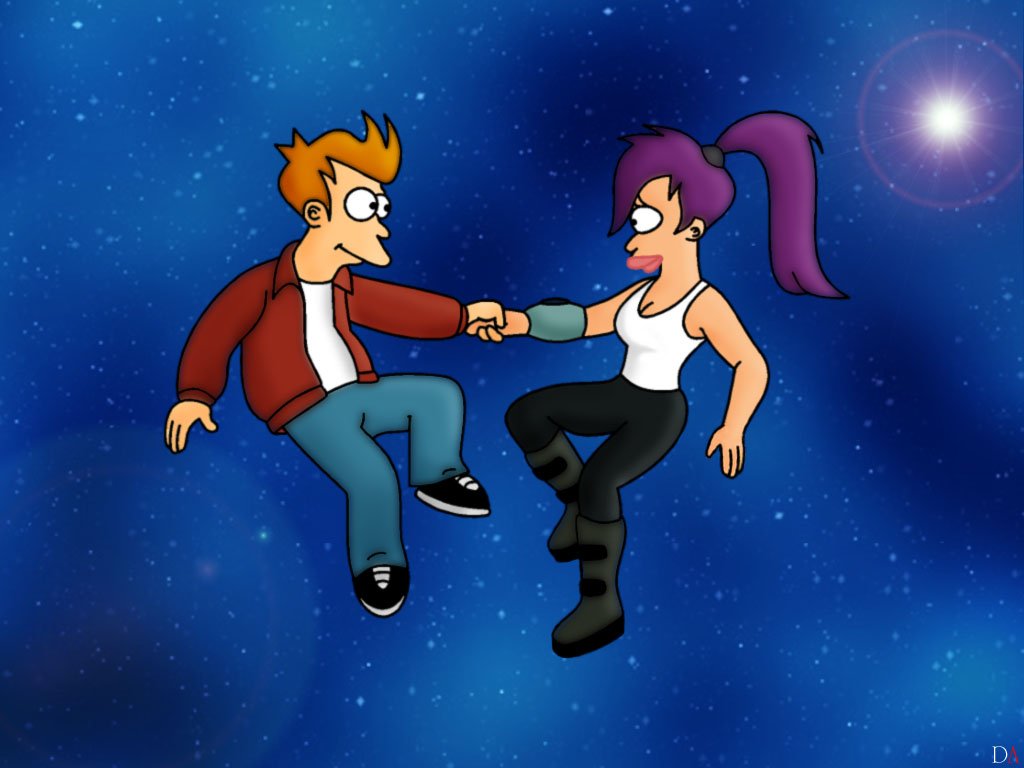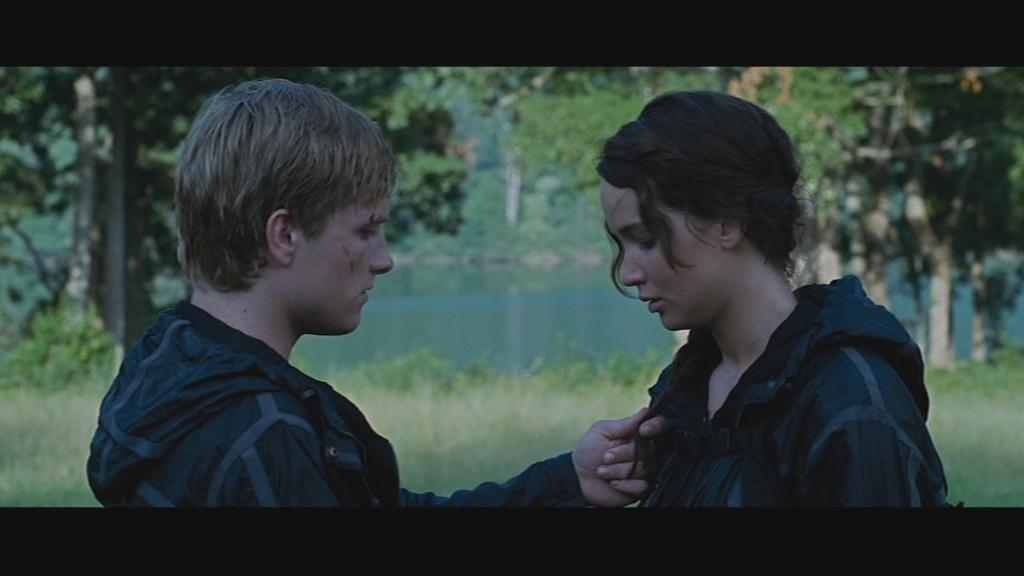Book Review:
Brian K. Vaughan, Fiona Staples
Image Comics, 2014
A+
With Hazel now a toddler, Alana and Marko are doing their best to get by on Alana’s salary from performing on the Open Circuit, but the high-pressure, drug-fueled work environment is starting to get to her, while the loneliness of taking care of things at home is doing much the same to him. Meanwhile, the Brand has taken up the chase for the fugitive family, and Prince Robot the IV’s son being born in his absence is only the beginning of his newest nightmare.
The Downside:
There’s a fantastic moment in which Alana tries to defend her addiction, citing the horrors she’s been through as a soldier and claiming that no one could possibly understand, prompting Izabel to remind her that she understands the costs of war possibly better than anyone.
Izabel is the ghost of half a teenage girl, bound forever to the physical realm after stepping on a landmine. And for reasons unfathomable, Izabel’s hanging, severed entrails, which by now are such a normal part of her appearance that it’s easy to forget they’re there, are out of frame in this panel which would otherwise be a beautifully horrible moment to re-notice them.
This tiny choice in the composition of the artwork for a moment that remains powerful anyway is all the negative commentary I can offer.
The Upside:
The kidnapping of Prince Robot’s son, by a crazed victim of the Robot Empire’s horrific class struggle, may be the best example yet of Saga’s ability to blur the line between heroes and villains, making opposing sides conflictingly relatable.
As for Alana and Marko, this is that standard chapter of an extended romance where the relationship itself, the one good thing that has thus far stood against all adverse circumstances, is called into question.
Only it’s not that standard chapter, because those chapters are awful, and this is Saga, the farthest possible thing from awful.
Those are the chapters when characters hitherto known for their steadfastness suddenly receive total personality transplants and begin lying to each other for no reason and making life-ending extrapolations from the tiniest of irritations, while the audience throws things at the pages or screen, checks their email, and waits for the happy couple to get over it.
Alana and Marko’s issues come from the reality of struggling to raise a child together in the poverty, pressure, and isolation of their fugitive status. They’re living the romantic happy ending of running away from it all together, and discovering that it’s not all that perfectly happy.
The drift between them, the breakdown of their trust, is so natural and yet so weighty and devastating, that it’s almost possible to believe that the core of the series -- their marriage -- might actually be over. The worst parts of both of them, not abrupt changes to their characters but elements that have been hinted at from the start, surface catastrophically. They both cross real lines, but because it’s both of them, and because of the solid foundation they once built between them, it’s easy to root for that reconciliation with a fervor so many breakup chapters can only dream of inspiring.
Agree? Disagree? Comments are always welcome (just keep it civil, folks)! Or keep up with my fictional musings by joining me on Facebook, Pinterest, Twitter, or by signing up for email updates in the panel on the right!
